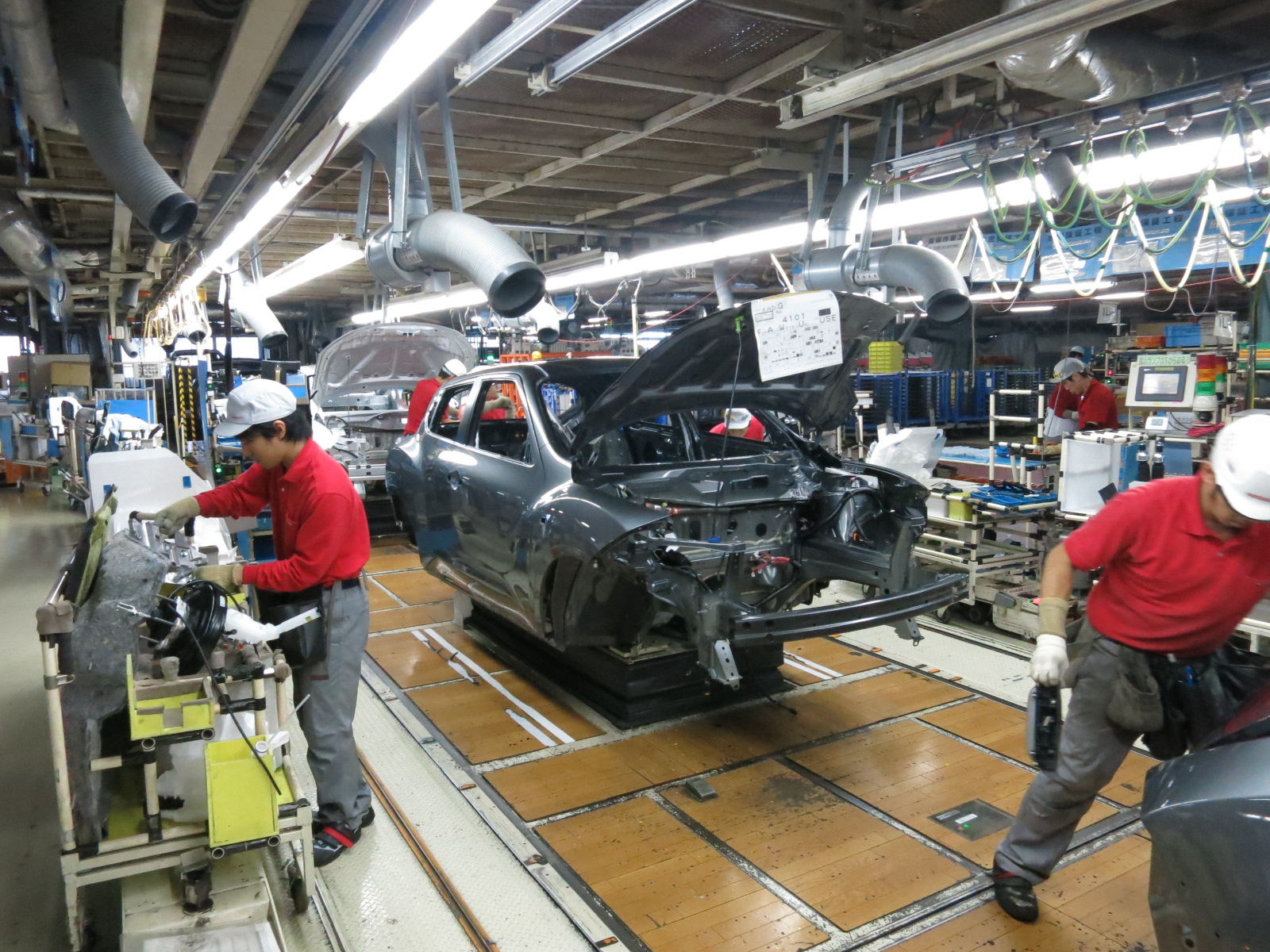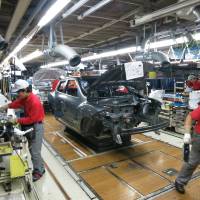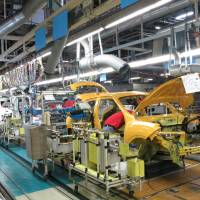Even as Nissan increasingly shifts its manufacturing base overseas, its factories in Japan still play a vital role in spreading production know-how and training workers in other countries, the automaker says.
The Yokohama-based manufacturer opened its Oppama plant in Yokosuka, Kanagawa Prefecture, which it refers to as its "global mother plant," to the media on Monday.
Nissan manufactured about 80 percent of its vehicles in Japan in the early '90s. Last year that figure was only about 20 percent.
"The global role of Japanese plants used to be to function as the production base, but they have now become a base to develop manufacturing technologies and train people and have them spread the knowledge globally," said Nissan Vice President Fumiaki Matsumoto.
For instance, the Oppama plant is tasked with finding ways to make production lines more efficient and sharing the know-how with overseas factories.
Also, the manufacturing process for new cars is first tested and tweaked at the Oppama plant before being introduced overseas, the firm said.
Rounding out the strategy, workers from abroad are brought to the plant for training in such skills as painting and parts assembly, as well as management.
The firm said about 1,500 Nissan workers have attended training sessions at the plant so far.
While the Oppama plant can churn out 240,000 cars a year, due to lack of demand it is currently operating at only about half that capacity, churning out models such as the Leaf, Cube, Juke and Sylphy, Nissan said.
Monday's media tour showed how auto bodies are manufactured, and how interior and exterior parts are put together on the assembly line.





